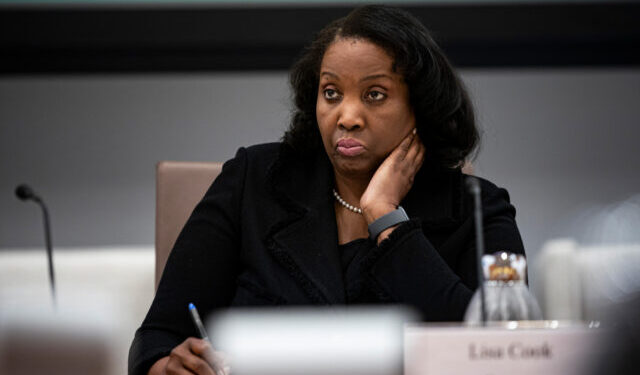A bitter legal fight is brewing over who really controls the Federal Reserve, and the outcome could reshape how much power presidents have to hold unelected regulators accountable.
On Monday night, a divided federal appeals court refused to let President Donald Trump immediately remove Federal Reserve Governor Lisa D. Cook, despite his declaration that he had “cause” to do so. The decision keeps Cook in her post — at least for now — just as the Fed heads into a major meeting on interest rates.
The majority on the D.C. Circuit focused not on whether Cook’s alleged misconduct warranted removal, but on whether she had been given due process before being ousted. Judges Bradley Garcia and J. Michelle Childs argued that her position carried a kind of “property interest,” meaning she deserved a formal chance to contest allegations before dismissal. That reasoning sets a striking precedent: insulating unelected officials, even those accused of serious dishonesty, from swift accountability.
The accusations against Cook are not minor. She is alleged to have made misrepresentations when applying for home mortgages before her appointment — conduct Judge Gregory Katsas said plainly “called into question her fitness as a financial regulator.” In his sharp dissent, Katsas made the obvious point: “Fraud is not just a permissible reason for removal. It is an excellent one.” He warned that Monday’s ruling ties the president’s hands, allowing compromised officials to “cling to power while litigation drags on” for months or even years.
The stakes could not be higher. Fed governors serve 14-year terms and directly shape the nation’s economic direction — from inflation to interest rates — with little oversight from the voters who ultimately bear the consequences. Presidents of both parties have long sparred with the Federal Reserve, but Congress made its governors removable only “for cause,” insulating them from politics. That insulation, however, was never intended to make them immune from accountability when questions of integrity arise.
By prioritizing procedural hurdles over the president’s constitutional authority, the court has effectively strengthened the shield around unelected bureaucrats — the very people whose decisions ripple through every household budget, mortgage, and retirement plan in the country. This fight is now almost certain to land before the Supreme Court, where the balance between executive authority and bureaucratic independence will be tested once again.
Meanwhile, the Federal Reserve is expected to cut interest rates by a quarter point this week, with Cook now able to cast her vote. For ordinary Americans watching grocery bills, mortgages, and savings rates, the implications are clear: unelected officials with shaky records remain empowered to make monumental decisions about the economy, and the president’s ability to act decisively has been hobbled by the courts.




















